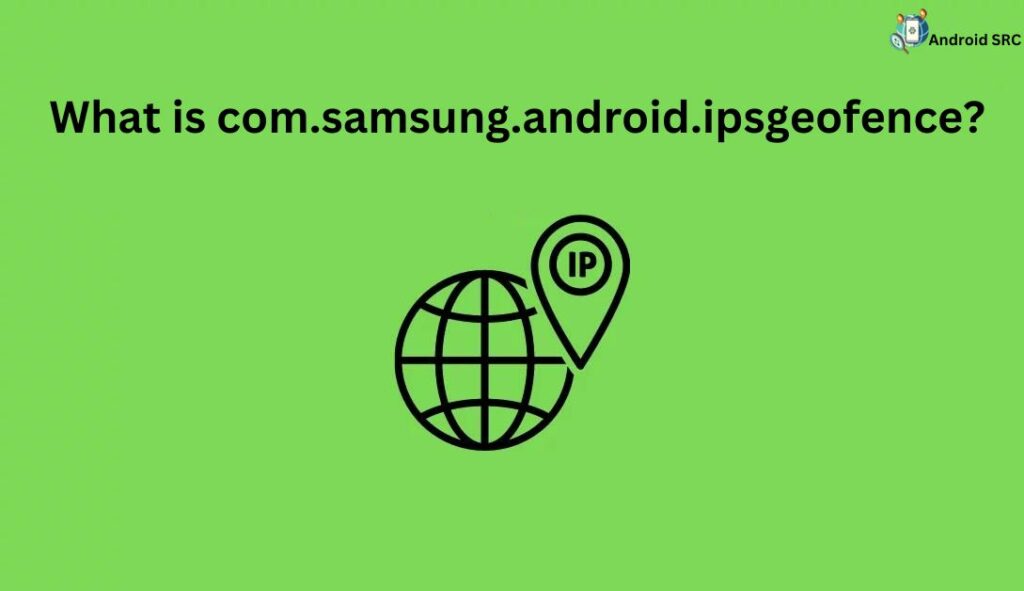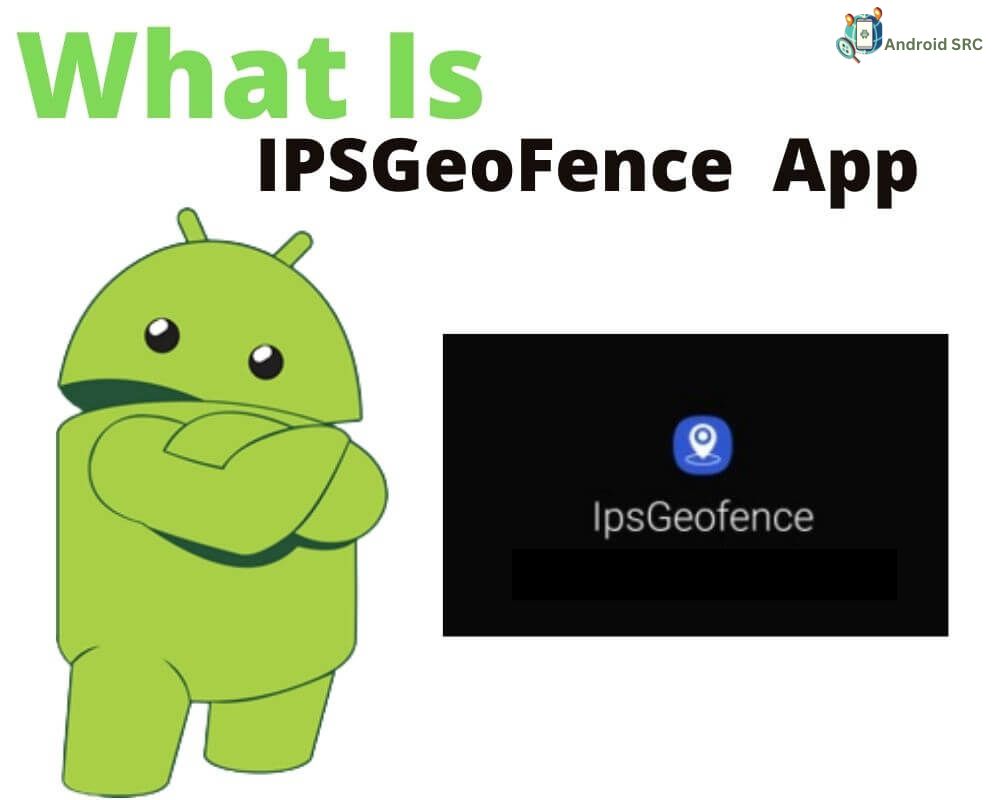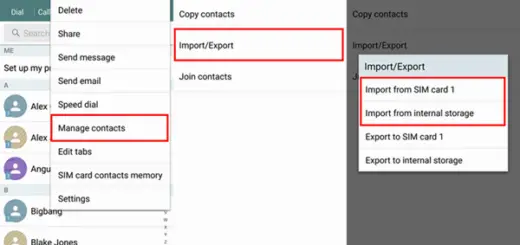com.samsung.android.ipsgeofence: A comprehensive guide
Have you ever wondered what com.samsung.android.ipsgeofence is and why it’s on your Android device? In this comprehensive guide, we will answer all your questions about IpsGeofence. From what it is, to how it works and its benefits, we have got you covered. We will also address common concerns such as whether IpsGeofence is a spy app or virus, and if geofencing can be hacked.
Additionally, we will share tips on how to fix the com.samsung.android.ipsgeofence keep stopped error and how to disable or uninstall the app if needed. So, sit tight and read on to learn everything you need to know about IpsGeofence.
What is com.samsung.android.ipsgeofence?

The “com.samsung.android.ipsgeofence” app is a pre-installed service on Samsung Android phones that helps track the device’s location. This app plays a role in geofencing, which is responsible for monitoring your location and delivering location-based advertisements to your device. It comes factory-installed on Samsung devices and helps determine your device’s location using various methods.
- Name: Ipsgeofence
- Package Name: com.samsung.android.ipsgeofence
- Developer: Samsung Electronics Co., Ltd.
What is IpsGeofence?

“IpsGeofence” refers to a geofencing service or component found on Samsung Android devices, enabling location-based actions and services, such as targeted ads or notifications, by monitoring a user’s location and interactions with specific geographical areas.
This app operates independently of a GPS positioning system and instead relies on data from a 3G or 4G cellular network. It can be utilized in various contexts, such as at home, in a business, parking lots, or at national borders.
The primary objective of this app is to monitor your location and trigger a loud ring on your phone for a duration of 10 seconds, regardless of whether you are inside your residence or within other predefined boundaries.
Why does my Android contain an IpsGeofence?

Your Android device contains IpsGeofence or similar geofencing components as part of the Android operating system or manufacturer-specific software to enable location-based services and features. These components are used to provide functionality like location-aware apps, navigation, location-based notifications, and targeted advertisements.
Geofencing helps your device determine when it enters or exits specific geographical areas, allowing applications to respond accordingly. While some users may find these features useful, others may have concerns about privacy and can often customize location settings and permissions to control how their device uses geofencing data.
Is IPSGeofence a Spy App or Virus?
IpsGeofence is not a spy app or virus. It functions as a component used for location-related functions on certain Samsung mobile devices. Its legitimacy depends on its implementation, adherence to privacy guidelines, and user consent. Always exercise caution by reviewing app permissions and obtaining apps from trusted sources to safeguard your device’s security and privacy.
There have been no reports indicating that the IPS GeoFence app contains malware, spyware, keyloggers, or any other malicious code, making it a generally safe and legitimate tool for location-based functionality on Android devices. However some people may find this app intrusive or unnecessary bloatware and prefer to disable or uninstall it altogether.
Ultimately, the decision to keep or remove IpsGeofence from your device depends on your personal preferences and comfort level with location-based services. By understanding and managing the permissions of IpsGeofence app, you can have better control over how your location data is accessed and used by various applications.
Remember, while IpsGeofence itself is not a spy app or virus, it is important to remain vigilant when downloading any apps and ensure they come.
What are the benefits of using an IPS geofence?
Using an IPS (Indoor Positioning System) geofence can offer several benefits, especially in indoor or densely populated areas:
- Precise Location Tracking: IPS geofencing can provide highly accurate indoor positioning, allowing for precise tracking of people or assets within a building or facility. This can be valuable in contexts such as indoor navigation, asset management, and security.
- Vehicle Tracking: It’s particularly useful for tracking vehicles in real time, allowing users to easily locate their vehicles on a map.
- GPS Technology: The app utilizes GPS technology and mobile towers to assist users in locating vehicles and tracking locations, including lost cars and Android phones.
- Enhanced User Experience: IPS geofencing can improve the user experience in indoor environments by enabling location-based services, such as indoor navigation, wayfinding, and location-based notifications. This can be particularly useful in large shopping malls, airports, hospitals, and other complex indoor spaces.
- Geofence Customization: IPS geofencing allows for the creation of highly customizable geofences with specific shapes and sizes, which can be adapted to the unique layout of indoor spaces.
- Analytics and Insights: Data collected through IPS geofencing can provide valuable insights into user behavior and movement patterns within indoor spaces. This data can be used for business intelligence, improving layout design, and optimizing resource allocation.
- Personalization: IPS geofencing can enable personalized experiences for users by delivering location-based content, recommendations, or services tailored to their specific location within a building. This is one of the main functions of the Android app IPS geofence.
IpsGeofence System Permissions
- Location Permission:
android.permission.ACCESS_FINE_LOCATIONorandroid.permission.ACCESS_COARSE_LOCATION - Change Wifi Status:
android.permission.CHANGE_WIFI_STATE - Carrier Permission: There isn’t a specific “Carrier Permission” in Android. Permissions related to carrier information and SIM card access are typically bundled under other permissions like
android.permission.READ_PHONE_STATEorandroid.permission.READ_SMS, depending on the specific use case. - Notification Permission: Android does not have a specific “Notification Permission.” Notifications are typically controlled by the app’s ability to create notifications, and there isn’t a single permission for this purpose.
- Storage Permission:
android.permission.WRITE_EXTERNAL_STORAGE(for write access) andandroid.permission.READ_EXTERNAL_STORAGE(for read access) is used for storage-related permissions.
How to Fix com.samsung.android.ipsgeofence Keep Stopped Error?
If you’re encountering the “com.samsung.android.ipsgeofence has stopped” error on your Samsung phones, you can try the following steps to resolve the issue:
- Restart Your Device: Sometimes, a simple restart can clear temporary glitches and resolve the error. Press and hold the power button, then select “Restart” or “Reboot.”
- Clear App Cache and Data:
- Go to “Settings” on your device.
- Scroll down and select “Apps” or “Application Manager.”
- Find “IpsGeofence” or “com.samsung.android.ipsgeofence” in the list of apps.
- Tap on it and then select “Storage.”
- Tap “Clear Cache” and “Clear Data.” Note that clearing data may reset any custom settings related to IpsGeofence.
- Update or Uninstall Updates: In the same “IpsGeofence” or “com.samsung.android.ipsgeofence” app settings, look for “Uninstall updates” or “Update.” Try updating the app if an update is available, or uninstall updates to revert to the original version of the app.
- Check for System Updates: Ensure your device’s operating system is up to date. Sometimes, system updates include bug fixes that can resolve app-related issues.
- Disable and Enable the App:
- In the app settings, you may find an option to “Disable” the app.
- Disable it, then re-enable it. This can sometimes reset the app’s behavior.
- Factory Reset (Last Resort): If none of the above solutions work, consider performing a factory reset on your device. This should be a last resort, as it will erase all data on your device. Before doing this, make sure to back up your important data.
- Contact Samsung Support: If the problem persists, it’s advisable to reach out to Samsung’s customer support or visit a Samsung service center for professional assistance. They can provide more specific guidance and solutions based on your device’s model and software version.
How do I disable IpsGeofence?
You can disable the IPS geofence App easily by following the steps below;
- Open your Android device’s settings.
- Navigate to “Apps.”
- Tap the three vertical dots (hamburger menu) at the top-right corner and choose “Show System Apps.”
- Locate and open “IpsGeoFence” or “com.samsung.android.ipsgeofence.”
- Tap “Disable” to turn it off.
How to uninstall the ipsgeofence App?
Here are the steps to uninstall the IpsGeofence Application:
- Open the Settings app.
- Select “Application Manager.”
- Tap “Show System Apps.”
- Find the IpsGeofence App.
- Tap “Uninstall.”
- Confirm the uninstallation.
Please note that we recommend caution when uninstalling this app, as it may have useful functions.
FAQ’s:
How does geofence use IPS?
Just as an IP address doesn’t pinpoint the exact physical location of a computer or phone but serves as a code for network purposes, geofencing similarly relies on IP addresses to determine the physical location of a computer or phone. Geofence is a user-friendly and a useful app that that utilizes these unique numbers to identify devices connected to a cellular network, such as the Internet.
Geofences are essentially virtual boundaries created around specific places or objects. An IPS geofence can be established using various technologies like GPS, Wi-Fi, Bluetooth, or radio waves, depending on what’s available.
By leveraging IP addresses, Geofence can identify individuals and their approximate physical user’s location through their Android phones. This allows Geofence to track individuals within physical spaces accurately.
Can Geofencing be hacked?
Some people can trick geofencing by using a GPS spoofing app. This app lets you pretend you’re in a different place by changing your GPS location. So, you can make the geofence believe you’re inside an area when you’re not really there.
Is Your Data Safe With IPSGeofence?
Firstly, IPSGeofence clearly tracks and utilizes your phone’s location, monitoring when and where individuals enter or exit specific areas. However, it’s important to note that the app’s intention isn’t to steal user information; instead, it leverages geographical data to offer advanced location-based features.
Given this, it’s unlikely that they would misuse your data as it would harm their reputation and market standing. Nevertheless, if you value your privacy and prefer not to have smartphone companies access your location data, you can easily uninstall the app.
Is geofencing an invasion of privacy?
Geofencing can sometimes feel like it’s invading your privacy because it tracks where you are, which can lead to personalized ads and might make you feel like your personal space is being invaded. It can also create virtual boundaries that limit where you can go, which is kind of like surveillance.
To protect your privacy, you can do a few things. First, you can turn off location services on your devices so apps can’t track where you are. Second, you can delete apps you don’t use to stop them from collecting your information. Lastly, you can choose not to receive personalized ads, so companies won’t use your data for ads that are specifically for you.
Conclusion
In conclusion, com.samsung.android.ipsgeofence is a system app that provides location-based services and geofencing capabilities on Samsung devices. It ensures efficient use of device resources and offers various benefits such as improved location accuracy and personalized experiences.
Rest assured, it is not a spy app or virus and does not compromise your privacy or data security. However, if you encounter any issues or errors related to com.samsung.android.ipsgeofence, you can easily fix them by following troubleshooting steps or disabling the app if you no longer require its services.



